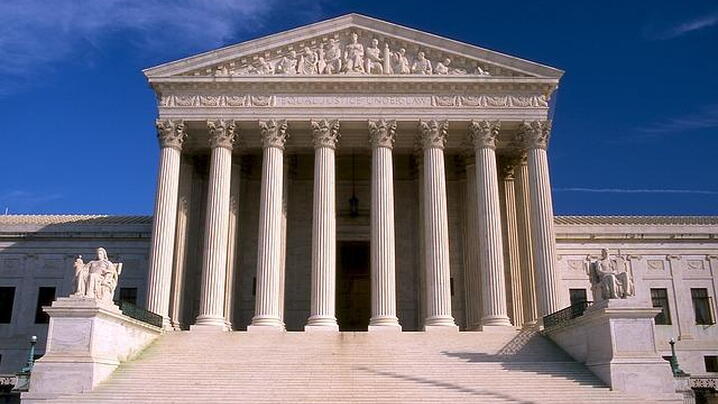
by Lisa Soronen, executive director, State and Local Legal Center
In Byrd v. United States, the Supreme Court held unanimously that the driver of a rental car generally has a reasonable expectation of privacy in the rental car even if he or she isn’t listed as an authorized driver on the rental agreement.
A state trooper pulled Terrance Byrd over for a possible traffic infraction. Byrd’s name was not on the rental agreement. He told the officer that a friend had rented it. Officers searched the car and found 49 bricks of cocaine and body armor.
While the Fourth Amendment prohibits warrantless searches, generally probable cause that a crime has been committed is enough to search a car. To claim a violation of Fourth Amendment rights, a defendant must have a “legitimate expectation of privacy in the premises” search.
The United States argued that drivers not listed on rental agreements always lack an expectation of privacy based on the rental company’s lack of authorization. The Supreme Court, in an opinion written by Justice Kennedy, rejected this argument reasoning that “the Government fails to explain what bearing this breach of contract, standing alone, has on expectations of privacy in the car. Stated in different terms, for Fourth Amendment purposes there is no meaningful difference between the authorized-driver provision and the other provisions that the Government agrees do not eliminate an expectation of privacy, all of which concern risk allocation between private parties—violators might pay additional fees, lose insurance coverage, or assume liability for damage resulting from the breach.”
The Court also noted that a legitimate expectation of privacy may be tied to property rights—including the right to exclude others. The United States agreed that Byrd could exclude third parties from the rental car even though he wasn’t listed on the rental agreement. “The Court sees no reason why the expectation of privacy that comes from lawful possession and control and the attendant right to exclude would differ depending on whether the car in question is rented or privately owned by someone other than the person in current possession of it . . . .”
Despite the Supreme Court’s unanimous decision, Byrd may still not ultimately win. If Byrd unlawfully possessed the rental car, he would have no reasonable expectation of privacy in it. While the United States claimed Bryd had a friend rent the car for him because Byrd’s criminal record precluded him from doing so, it is unclear this violated the law. But as the Court pointed out, “it may be that there is no reason that the law should distinguish between one who obtains a vehicle through subterfuge of the type the Government alleges occurred here and one who steals the car outright.”
Byrd also faces another argument before the lower court. Even if Byrd had a Fourth Amendment interest in the rental car, the officers claim they had probable cause to believe it contained evidence of a crime when they searched it.
Related Content
Supreme Court Rules GPS Monitoring of Sex Offenders is a Fourth Amendment Search. This 2015 blog post looks at another Supreme Court case on Fourth Amendment search. This time the issue is on the use of GPS (Global Positioning System) by state and local governments.
Qualified Immunity Ruling for Police Officer Causes a Stir. A 2018 blog post analyzed the decision by the Supreme Court on a qualified immunity case involving a police officer.
Ten Years of the Roberts Courts for States and Local Governments. The year 2015 marked 10 years of the Supreme Court under Chief Justice Roberts. In a 2015 blog post, Lisa Soronen reviewed the Roberts court in terms of the court's rulings on state and local government issues.
New, Reduced Membership Dues
A new, reduced dues rate is available for CAOs/ACAOs, along with additional discounts for those in smaller communities, has been implemented. Learn more and be sure to join or renew today!
